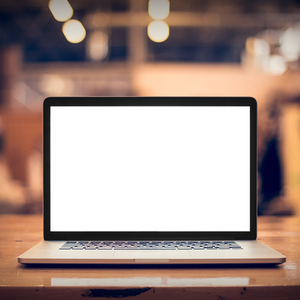
Computer lifespan is the length of time one can use the device before it must either undergo repairs or a complete replacement.
More...
Therefore, the lifespan of a computer depends on the type of components the device uses.
The motherboard, CPU, and memory are the most important parts that determine how long a computer will last.
The following post lists a few suggestions to help you improve the life span of your computer before you send it off to a recycling bin.
Computer Lifespan
One way to extend your computer's lifespan is by adding more memory to handle more tasks simultaneously.
Still, there are other ways to ensure that it operates within a stable environment or uses less power when not performing complex tasks.
For example, suppose you use your laptop only for word processing and web browsing.
In that case, you don't need all the functions available on an office desktop machine, making your battery last longer because you aren't using those features.

The Benefits of Computer Maintenance
Computer lifespan is increased by taking care of the machine. Thus, the benefits of computer maintenance include better performance, fewer crashes, and more stable conditions.
The first thing to remember includes storing it in a cool, dry place, periodically shutting down your device, not putting any heavy objects on top of the system (which could cause overheating), and using only reputable chargers to power up.
Computer care will extend the life of your invaluable electronic device by wiping out harmful viruses and malware that have collected over time on its hard drive.
It is essential to keep your computer clean and free from dust, dirt, debris, or other contaminants that can accumulate on the fan and heat up when in use.
In addition, dust particles may also build up over time due to normal wear and tear.
As a result, it is necessary for you to occasionally clean out these areas by removing them with compressed air, so they don't cause any damage down the line!
Another central point, running a disk defragmenter, deleting temporary files, and emptying recycle bins regularly will extend the life of your computer.
In the same fashion, it is also essential to keep your antivirus software up-to-date with new virus definitions to protect you from any viruses or spyware trying to infiltrate your system.
Use the Proper Accessories for Your Computer
One way to prolong a laptop or desktop's lifespan is by using it with proper accessories designed for laptops and desktops.
These include screen protectors, external hard drives, mousepads, docking stations, and keyboards with built-in batteries, so you don't need an extra one.
It would help if you also used a quality cooling pad and fan. You should also use an external hard drive, monitor power cord, or USB hub to reduce strain on your laptop's internal components.
Keep Your Computer Cool
The computer lifespan is increased by using the correct type of cooling and updating its software.
It's essential to keep your device cool and avoid overheating, which can cause damage by shortening its lifespan or causing hardware failure.
Hence, you should not overcharge your battery as this will increase heat production and shorten the battery's life.
Comparatively, your CPU will run slower when too hot, so you should avoid using high-power programs such as video games or compiling software while the machine is running at full speed to prevent damage from occurring.
Update Your Device Regularly
You can significantly increase the computer lifespan by performing maintenance such as installing updates and replacing components.
The best way to do this is by regularly getting software updates for your operating system and applications.
Updating your device ensures that you are always running the latest version of these programs, which can help prevent bugs from being introduced into them or malicious code from infecting them with viruses and other forms of malware.
Moreover, updating helps eliminate security vulnerabilities, patches new features into existing programs, improves performance, and, more importantly, keeps your device up-to-date with all the latest updates for a more extended period than if you did not do so.
Safely Move Your Computer
You can follow a few simple steps when moving your computer. First, turn off and unplug all devices from your computer, including any phones or tablets connected to Bluetooth.
Next, make sure you have backed-up all necessary documents from your hard drive to an external hard drive or cloud service before moving it, and anything else you would like to keep in case something goes wrong with the process.
Further, avoid bumping into walls and furniture while transporting it anywhere because these slight movements can damage delicate parts inside the machine, leading to more costly repairs down the road.
Moreover, be careful not to knock or drop anything on the hard drive and keep it away from volatile liquids like coffee, tea, juice, or water.
At the same time, keep your computer in a cool, dry place when possible so that condensation doesn't build up inside the machine, which can cause damage over time.
In like manner, placing the device in a protected environment such as packaging, crates, boxes with cushioning material inside and on top of them (to protect against shock), etc., can increase the computer lifespan considerably.
Any potential damage is prevented during transport and storage by following these suggestions.
Unplug Your Laptop
Generally speaking, unplugging your computer is a simple way to save electricity and extend your device's lifespan.
It also prevents any future damages from overcharging or overheating that could occur if you leave it on for too long.
If you leave your device charging overnight, make sure to unplug it before going to sleep as well!
Additionally, if you have an older desktop PC running slow due to constant power usage while idle, try switching off its hard drive after every few hours to avoid strain on the system's components during light periods.
Use a Compatible Surge Protector
A surge protector is an electrical device that protects electronic devices from power surges, spikes, and other harmful voltage fluctuations.
Furthermore, the protector prevents damage to connected equipment by diverting excess electricity through its internal components, which absorb energy and release it as heat or harmless pulses of current in one direction only.
The most common types are line-interactive (LII) circuit breakers with MOVs or varistors for voltage suppression; however, using switched-mode power supplies will provide high-frequency switching voltages.
Turn Off Your Computer
Turn off any unnecessary programs when not in use. Turning off the device will help save power, which is vital if you use an older model or laptop.
To clarify, when you turn it off, the hard drive is not powered down. Still, it remains in a low-power mode known as hibernation that saves power by using what's needed to run essential parts of the system like memory and processing units.
To put it differently, this means when you turn on your computer again after turning it off for hours or days, everything will be running smoothly without any delay from powering the device up.

In Essence
Computer lifespan, or the time one can use the device without experiencing any significant degradation in its ability to function over time, is directly related to its being programmed and utilized.
The more intensively a computer works, for example, if you're using 3D rendering software on your laptop, the sooner that machine will need repairs or replacement parts.
With this in mind, consider computers as living things with their own unique needs and limitations.
Ensure that you regularly update your operating system, software programs, and antivirus programs.
Also, make sure all printers and other peripherals connected by USB cables are up-to-date since these devices often require updates for security purposes.
In addition, it is imperative to update your software with new features, security patches, and other fixes because this will protect your computer from vulnerabilities.
Don't leave your computer on 24 hours per day. As a result, this drains battery life and causes heat buildup, which will decrease its lifespan.
Keep your computer cool and in an environment with no heat sources.
Use a power supply that is more efficient than the one it replaced.
Remove unnecessary files and programs that you won't need any more from the hard drive, so it doesn't take up space on your computer's memory cards/drives.
The longevity and efficiency of computers have been greatly affected by human ingenuity.
With more computing power installed into smaller, thinner devices, there is no doubt that humans will continue to find new ways to maximize their use in this digital age.